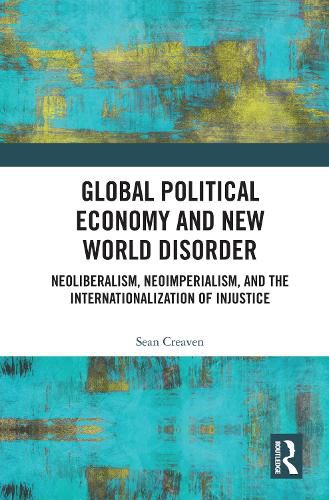Readings Newsletter
Become a Readings Member to make your shopping experience even easier.
Sign in or sign up for free!
You’re not far away from qualifying for FREE standard shipping within Australia
You’ve qualified for FREE standard shipping within Australia
The cart is loading…






Drawing upon a range of resources of critique (including critical realist social theory, realist international relations theory, the sociology of globalization, the Marxist critique of imperialism, and dependency theory), this book is an essential contribution to the critical understanding of nationalism and imperialism in the global age. It conducts a sustained and in-depth analysis of the relations between the asymmetry in the distribution of economic resources and powers of command, and the recent play of political events involving imperialist wars, including the Russo-Ukrainian and Israeli-Hamas wars. Crucially, the author argues that establishing these connections requires theorizing political economy in the so-called global age as comprised of neoimperial and neoliberal orders. As such, the book offers a new interpretation of the relations between neoliberalism and neoimperialism, and between modes of organizing social relations and resulting global disorders and instabilities. This will therefore be of interest to researchers, scholars, and students working at the intersection of global political economy, international relations, and the sociology of globalization.
$9.00 standard shipping within Australia
FREE standard shipping within Australia for orders over $100.00
Express & International shipping calculated at checkout
Drawing upon a range of resources of critique (including critical realist social theory, realist international relations theory, the sociology of globalization, the Marxist critique of imperialism, and dependency theory), this book is an essential contribution to the critical understanding of nationalism and imperialism in the global age. It conducts a sustained and in-depth analysis of the relations between the asymmetry in the distribution of economic resources and powers of command, and the recent play of political events involving imperialist wars, including the Russo-Ukrainian and Israeli-Hamas wars. Crucially, the author argues that establishing these connections requires theorizing political economy in the so-called global age as comprised of neoimperial and neoliberal orders. As such, the book offers a new interpretation of the relations between neoliberalism and neoimperialism, and between modes of organizing social relations and resulting global disorders and instabilities. This will therefore be of interest to researchers, scholars, and students working at the intersection of global political economy, international relations, and the sociology of globalization.